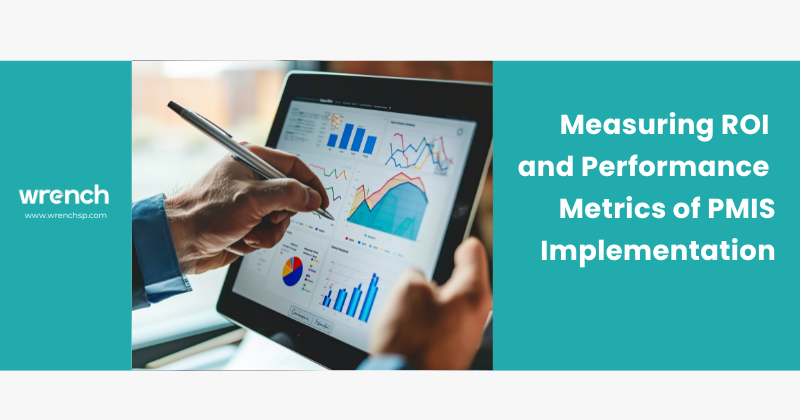The adoption of PMIS systems has increased significantly in recent years as the trend of digitally transforming the EPC process continues to grow at a rapid pace. For such organisations, understanding how the features of their project management information system (PMIS) impacts their business is paramount, and therefore, assessing the ROI they can expect from such systems is a priority.
Today we’ll consider some of the key metrics to keep in mind when evaluating the value of a digital project management system. Let’s start with some of the key performance criteria that an organisation expects from their PMIS:
- A centrally-controlled database of project documents that is easily accessible to all parties, which is secure yet flexible enough to be used by external third parties. This includes all the information and records about past projects and in-the-pipeline projects, like RFIs, memos, correspondence, transmittals, safety reports and on, and of course all the engineering drawings and designs as well as vendor-related and procurement-related documents . It should also include any information required to enforce the quality management system/controls like submittals, site inspection documents and records, material inspection reports, non-conformation reports (NCRs), snag lists, punch lists, and so on.
- The ability to capture day-to-day transactions and communication between project parties and maintain an updated register of all the transactions, including the risks and their mitigation strategies
- Forecasting-related information including baseline, revised and updated schedules to help management with decision making. This may require the PMIS system to integrate with third-party software.
- Commercial/financial data like contracts, budget and budget version, cashflow, invoices, payments made against invoices etc., which would help the organisation maintain accurate and robust digital records that can be easily transferred when needed.
- A system of ensuring regular (monthly, weekly, daily) progress monitoring via the online real-time capture and storage of pertinent data, as well as the sharing/transmittal of the data in real time to project stakeholders like clients, owners, and contractors.
This is a basic list – obviously each organisation will have to identify its own – but once the performance markers have been identified the organisation can create a framework to measure the expected benefits against those markers. For example, it is undeniable that having access to a project’s data and information is invaluable, but by breaking down the requirements more precisely the organisation can protect itself against a variety of claims and penalties that may arise from late delivery or wrong data. The organisation can compare its financial records about such incidents that may have occurred in the past and assess how much they will be saving after switching to their new PMIS system, thereby reducing the chance of similar incidents in the future.
The digitisation of data is in itself a significant portion of the ROI, keeping in mind how much is typically spent in document management alone. However, the benefits of a PMIS are not limited to data management. Here are a few more:
Lean (and green) engineering and project management. A good digital project management system gives you a reliable and secure virtual platform on which your processes can be carried out with a high degree of automation, which in turn ensures that quality is achieved because every step is carried out as prescribed, and if there is a deviation, it can be quickly identified and rectified.
Big Data, Knowledge and Intelligence Management. By capturing a project’s data at the source, the organisation gets a valuable database that can be accessed from anywhere. This database can be leveraged, either manually or by incorporating some element of AI and machine learning algorithms, to leverage lessons learned and problem+solutions in future projects.
Accelerating Digital Transformation Strategies. Today everybody is getting onto the digital bandwagon and a PMIS helps accelerate the transition from manual data management (or siloed generic solutions) to integrated project management practices, helping to change the way the organisation works as a whole.
Building brand value and trust. Having a PMIS can be a deciding factor in winning contracts and can be seen as a business differentiator or a competitive advantage. This is not surprising when you consider the practical value of a modern PMIS or digital project management system, from real-time graphical reports to 3D/4D CAD integration, not to mention the fact that all financial and commercial transactions are captured by the system and this creates a clear audit trail for every transaction and document.
There are other ROI-related benefits that could be identified on closer investigation, depending on the size of the company and/or the project but to sum up, investing in a PMIS in the current era of digital solutions seems to be the smart decision from the financial as well as the operational standpoint.
